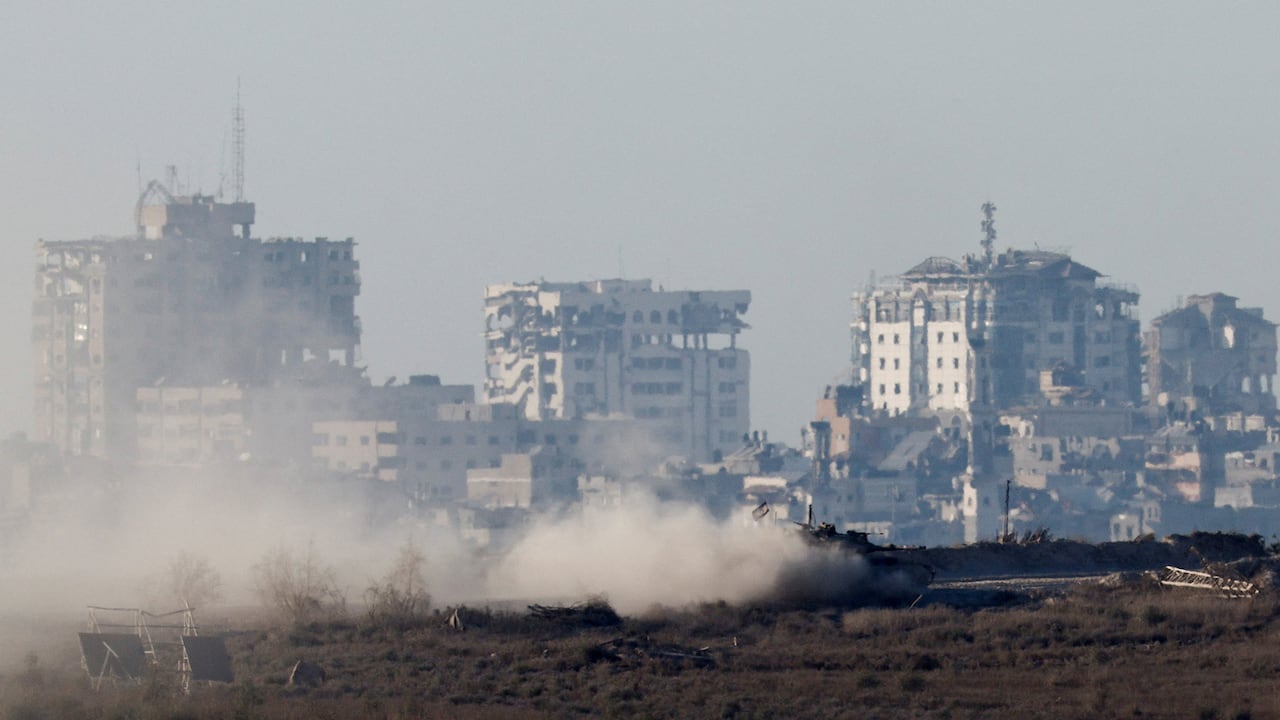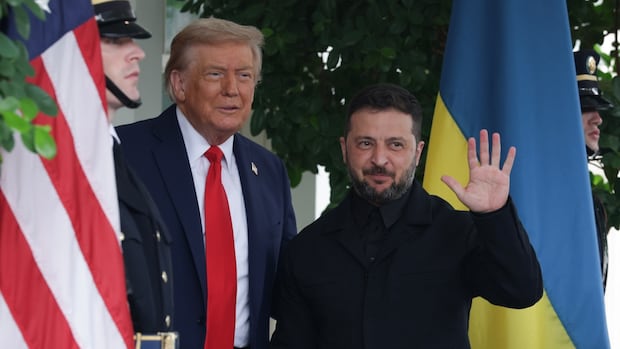Israel gave final approval for a controversial settlement project in the occupied West Bank that would effectively cut the territory in two. Palestinians and rights groups say it could destroy plans for a future Palestinian state.
Settlement development in E1, an open tract of land east of Jerusalem, has been under consideration for more than two decades, but was frozen due to U.S. pressure during previous administrations.
On Wednesday, the project received final approval from the Israeli government planning and building committee after the last petitions against it were rejected on Aug. 6. If the process moves quickly, infrastructure work could begin in the next few months, and construction of homes could start in around a year.
The plan includes around 3,500 apartments to expand the settlement of Maale Adumim, far-right Finance Minister Bezalel Smotrich said during a news conference at the site last Thursday. Smotrich cast the approval as a riposte to Western countries that announced their plans to recognize a Palestinian state in recent weeks.
Wadi Alkam shows CBC’s Susan Ormiston the aftermath of an attack on his home in Turmus Aya in the Israeli-occupied West Bank, where violence has reached a 20-year high, according to UN monitoring.
“The Palestinian state is being erased from the table not with slogans but with actions,” Smotrich said on Wednesday. “Every settlement, every neighbourhood, every housing unit is another nail in the coffin of this dangerous idea.”
The location of E1 is significant because it is one of the last geographical links between Ramallah, in the northern West Bank, and Bethlehem in the southern West Bank. The two cities are 22 kilometres apart, but Palestinians travelling between them must take a wide detour and pass through multiple Israeli checkpoints, adding hours to the journey.
Peace Now, an organization that tracks settlement expansion in the West Bank, called the E1 project “deadly for the future of Israel and for any chance of achieving a peaceful two-state solution” which is “guaranteeing many more years of bloodshed.”
Israel’s plans to expand settlements are part of an increasingly difficult reality for Palestinians in the occupied West Bank as the world’s attention focuses on the war in Gaza. There have been marked increases in attacks by settlers on Palestinians, evictions from Palestinian towns, and checkpoints that choke freedom of movement, as well as several Palestinian attacks on Israelis.
West Bank-related sanctions
More than 700,000 Israelis now live in the occupied West Bank and east Jerusalem, territories captured by Israel in 1967 and sought by the Palestinians for a future state.
The international community overwhelmingly considers Israeli settlement construction in these areas to be illegal and an obstacle to peace. Israel says the West Bank is disputed territory whose fate should be determined through negotiations.
Israel’s government is dominated by religious and ultranationalist politicians with close ties to the settlement movement. Smotrich, previously a firebrand settler leader and now finance minister, has been granted Cabinet-level authority over settlement policies and vowed to double the settler population in the West Bank.
Canada has issued sanctions targeting some Israeli settlers involved in violent acts and, along with other Western countries, targeted Smotrich and National Security Minister Itamar Ben-Gvir for what it has characterized as repeated incitements of violence against Palestinians, drawing heated responses from the Israeli government.
Earlier this summer, diplomats from several Western governments that had condemned the Netanyahu government came under fire from Israeli soldiers while visiting the West Bank city of Jenin. The IDF claimed to have fired warning shots in the air after diplomats strayed from an agreed route, although video footage from the scene showed soldiers aiming their rifles in a horizontal direction.
Four Canadian Embassy staff were among those forced to seek cover. Prime Minister Mark Carney described the shooting as “totally unacceptable.”
Israel to mobilize many more reservists
Meanwhile, Israel’s military said Wednesday it would call up tens of thousands of reservists and extend the service of others for an expanded military operation in Gaza City.
The scheme, expected to receive the final approval from the chief of staff in the coming days, includes calling up 60,000 reservists and extending the service of an additional 20,000 currently serving. It remains unclear when the operation will begin.
The planned offensive, first announced earlier this month, comes amid heightened international condemnation of Israel’s restrictions on food and medicine reaching Gaza and fears of another mass displacement among Palestinians.
Hamas officials confirmed Monday that the group has approved the latest Gaza ceasefire proposal from Arab mediators. This comes after Israel announced its plan to seize control of Gaza City.
Prime Minister Benjamin Netanyahu has said the objective of the war is to secure the release of remaining hostages and ensure Hamas and other militants can never again threaten Israel.
The families of the hostages and former army and intelligence chiefs have expressed opposition to the expanded operation in Gaza City. Most of the families of the hostages want an immediate ceasefire and worry an expanded assault could imperil bringing the 50 hostages still in Gaza home. Israel believes that 20 are still alive.
Arab mediators and Hamas said this week the leaders of the Palestinian militant group had agreed to ceasefire terms, though similar announcements have been made in the past that did not lead to a lasting truce.
Egypt and Qatar have said they have been waiting for Israel’s response to the ceasefire proposal.
“The ball is now in Israel’s court,” Egyptian Foreign Minister Bader Abdelattay said Tuesday.
Israel hasn’t formally responded, and Ben-Gvir said Monday that Netanyahu didn’t have a mandate to pursue such a truce.
Hamas-led militants started the war when they attacked Israel on Oct. 7, 2023, killing some 1,200 people, including several Canadian citizens, and abducting 251. Most of the hostages have been released in ceasefires or other deals.
More than 62,122 people have been killed during Israel’s 22-month offensive, Gaza’s Health Ministry said on Monday. The ministry is part of the Hamas-run government and staffed by medical professionals. The ministry does not say how many of the dead were civilians or combatants, but says women and children make up around half of the deaths.




